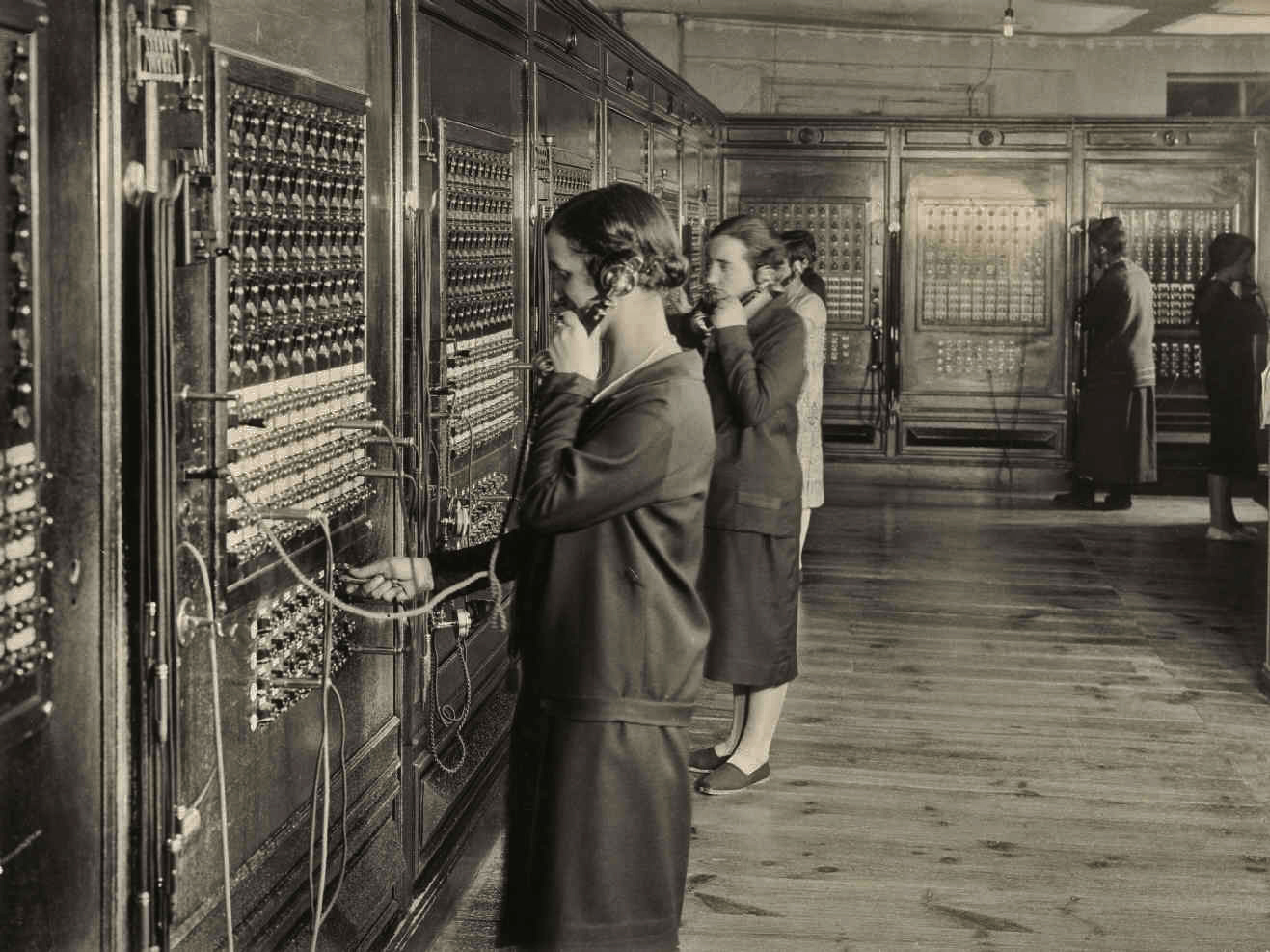Basque ethnography at a glance

Operators at telephone exchange. Vitoria-Gasteiz, 1926. Fundación Telefónica Photographic Archive.
It is commonplace to talk about the significant progress made in communication. Field research conducted in 1997 includes data gathered to a shepherd from the neighbourhood of Bernagoitia in Amorebieta-Etxano (Bizkaia) and reveals the use of an old method of communication.
As the flock grazed near the farmhouse or the camp during transterminance, and provided that sites messages were sent from and received were within sight, the messaging procedure prevented unnecessary journeys, spreading a white sheet or piece of clothing on the field being the signal, known as zeinea, to either confirm or rule out information previously agreed upon.
Only a few years down the line, shepherds and farmers today use mobile phones to communicate with their peers.
A similar transformation took place in towns and cities. In older days very few businesses and private households were equipped with a telephone, so calls were placed at local offices or switching centres with the assistance of operators. Longer distance calls were subject to longer delays, and international calls needed to be scheduled. Much the same occurred with postal services and telegraphy.
Means of transport were also painfully slow. Goods were transported and distributed in horse-driven carts or by wheelbarrows. Cars were scarce, buses and trains too slow, let alone sea navigation, before air transport became firmly established.
Then came telex, followed by the fax machine, whereby messages were transmitted by telecommunications networks. Telephone communication soon widespread, and landline telephones were readily available in most homes. Next mobile telephones made their appearance and are since the dominant means of communication for people of all ages and walks of life.
In this day and age computers are essential in communication, as are the internet, email messaging systems and the social media. Far from looking for the middle ground, we have moved from one extreme to the other over a fairly short space of time. Immediacy is a must these days, and online visibility and exposure turn to be excessive. Now more than ever before time runs outrageously fast. And yet the said advances come with a price, for improper, careless use leaves us at our most exposed and vulnerable.
Segundo Oar-Arteta – Etniker Bizkaia – Etniker Euskalerria Groups
Translated by Jaione Bilbao – Ethnography Department – Labayru Fundazioa

